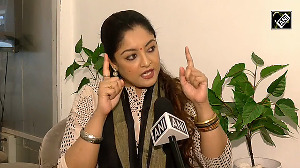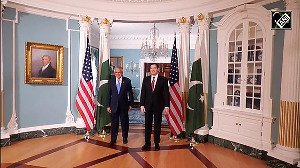Afghan officials have also said that they have handed over satellite images of houses of top leaders of the Taliban in the capital of Balochistan, Quetta, but Pakistani security forces were not taking action against them, New York Times reported. "If Pakistan does not help in investigations, Afghanistan will appeal to the United Nations to get involved," the Times reported, quoting a senior Afghan official who goes by the single name Dr Zia.
The paper, quoting sources in the Afghan capital Kabul, said the assassin gained entry to Rabbani's home by claiming to be a peace emissary from the Quetta shura, the supreme council that runs Taliban.
The Afghan official said that the sophistication of the bomb hidden inside the assassin's turban pointed to a link with Pakistan. He also said that video report of the confession of the suspected mastermind Hamidullah Akhundzadeh was also handed over to Pakistani authorities, who had dismissed it offhand.
Zia said, in his confession Akhundzadeh talks of meeting members of the Afghan peace council in Kabul and then returning to Quetta to brief Taliban leaders. Later, he accompanied the bomber, a Pakistani named Esmatullah, on a bus trip back to Kabul.
The official said the suspect told them that Afghan authorities might have been close to the plot at one point, because they arrested two relatives who hosted him and the bomber.
Zia said that according to Akhundzadeh's confession the plot to kill Rabbani was hatched six months ago and he was targeted for being both a high ranking official and head of the peace council. He alleged that Pakistani military intelligence knew about the attack, which also had the involvement of the Taliban's leadership council.
Zia said Afghan authorities had arrested others, but the main suspects were still hiding in Quetta. "We want them arrested and handed over, but they are not helping us."
At the new conference, Times said, intelligence officials showed satellite images of Quetta, highlighting three houses with yellow circles. Those, officials said, were the homes of the so-called shadow governors of the Taliban and other leaders whom Pakistan's authorities had not arrested.
The Afghan official said Pakistan government had delivered a message to its embassy in Kabul "informing us that they are not ready to cooperate with us."










